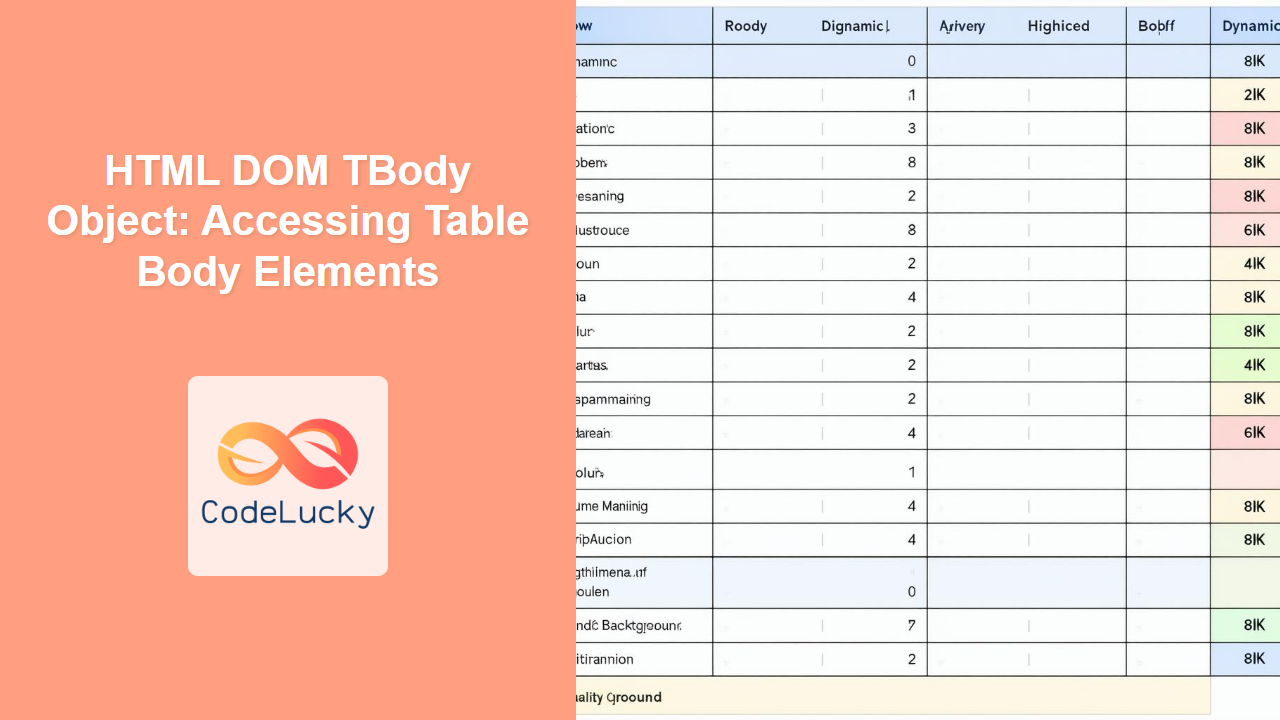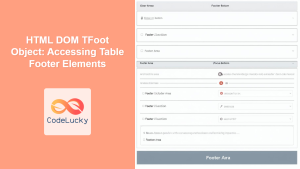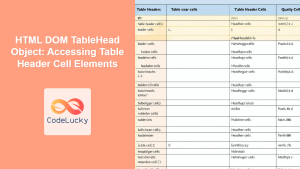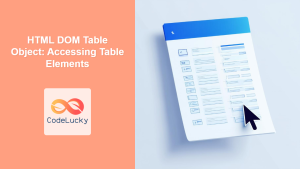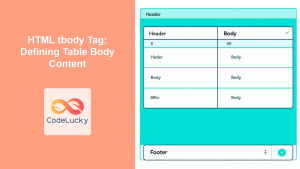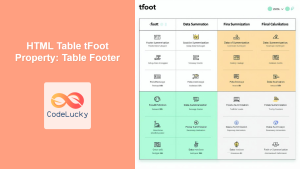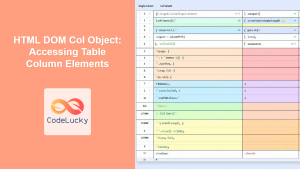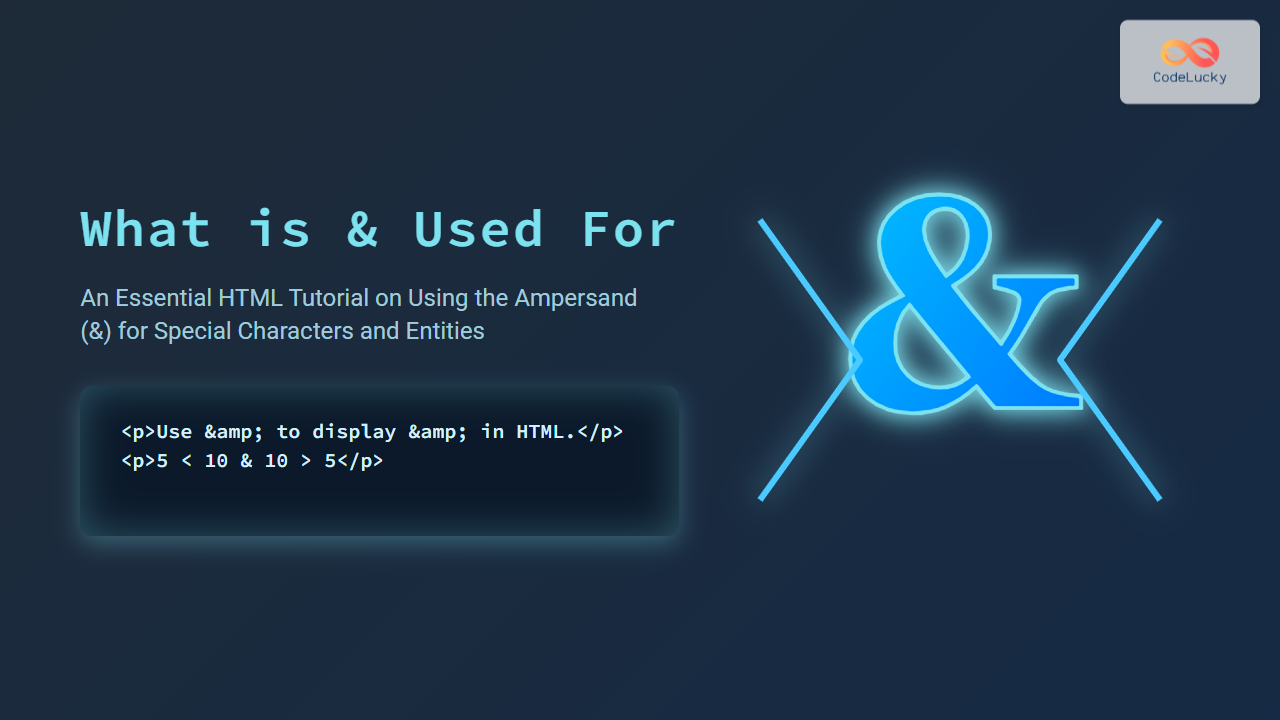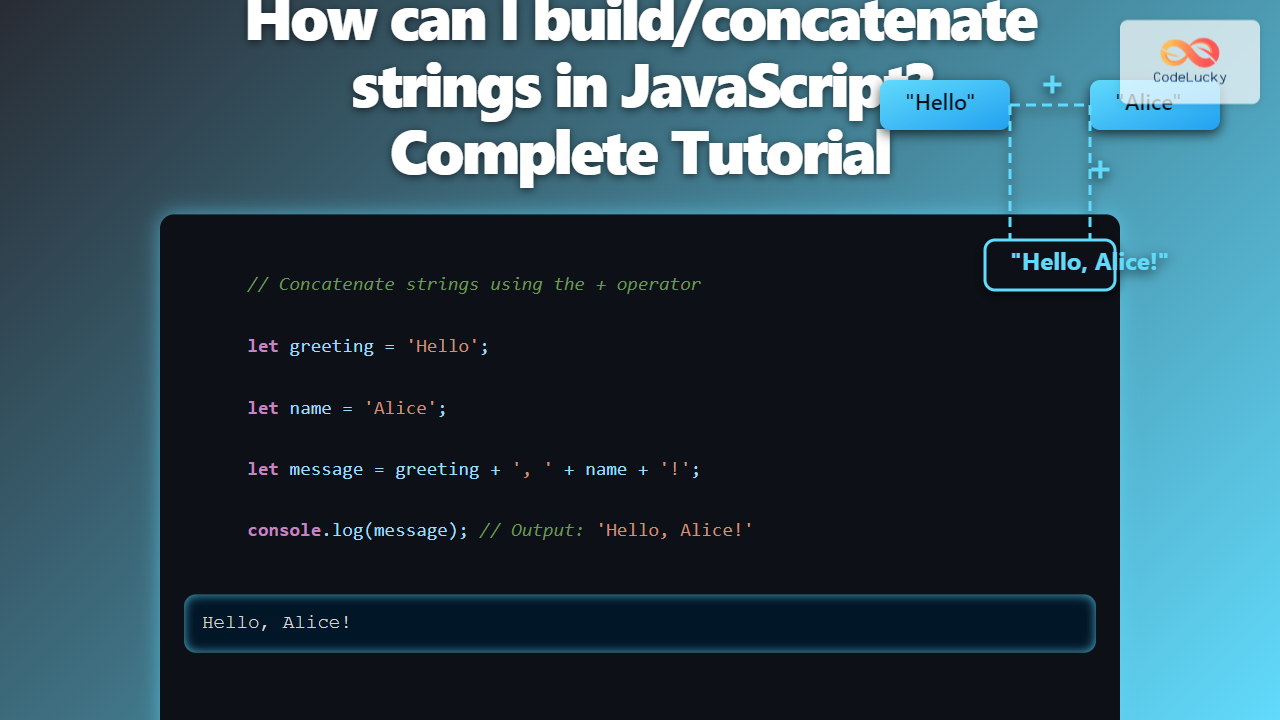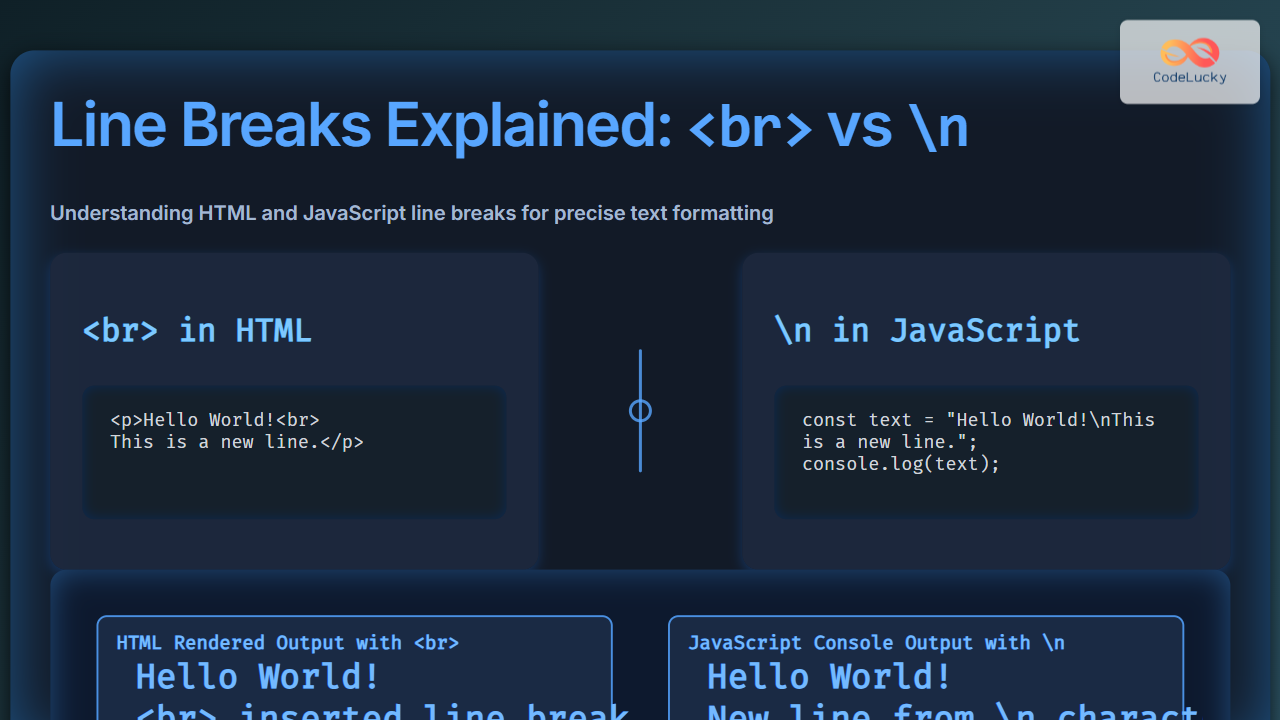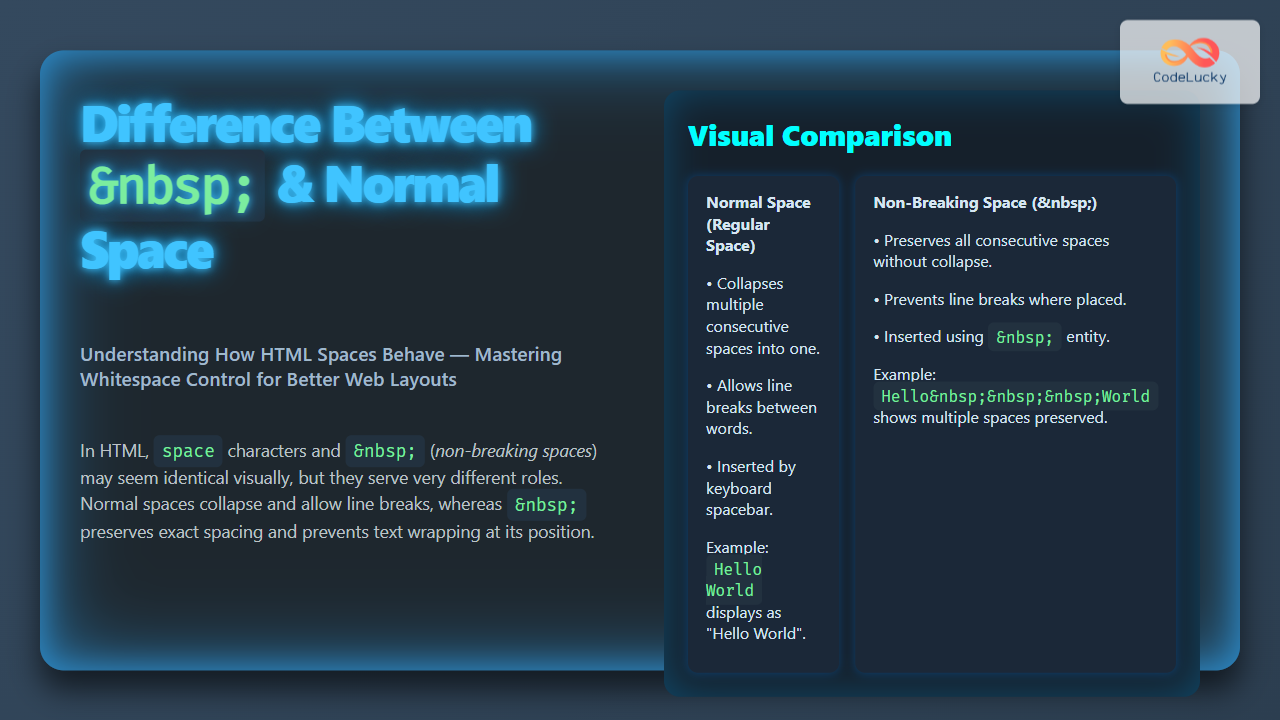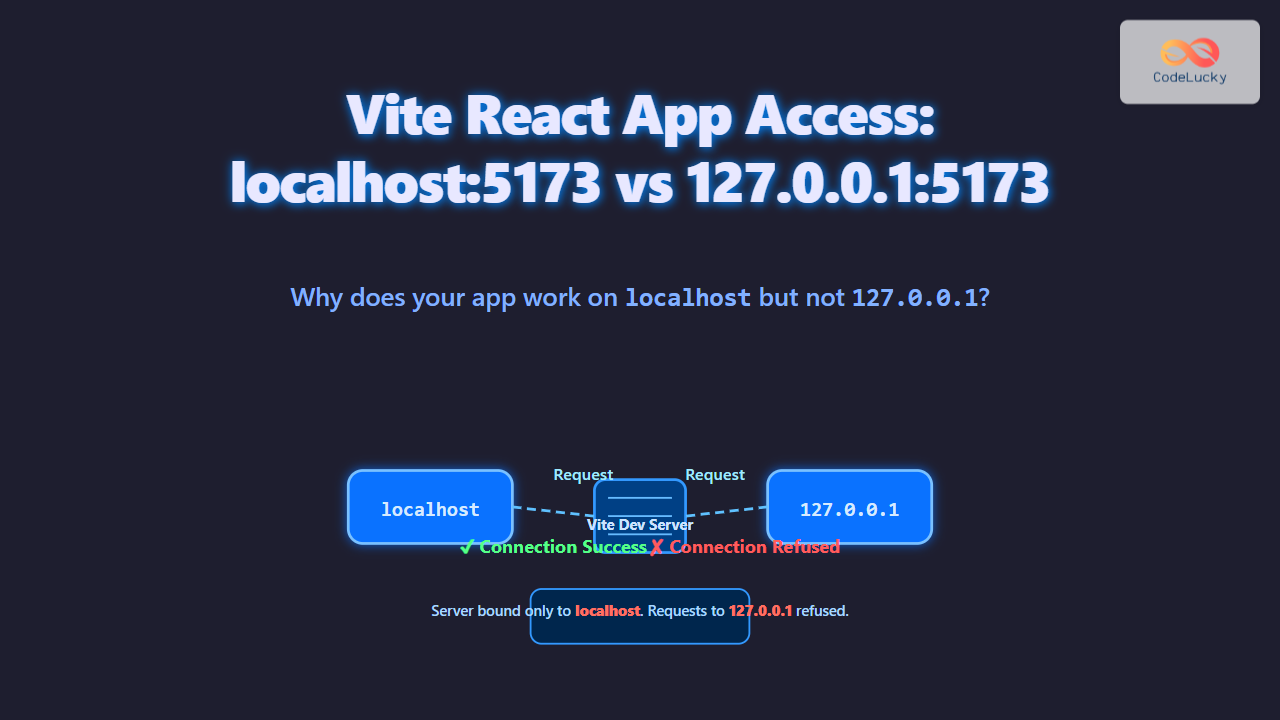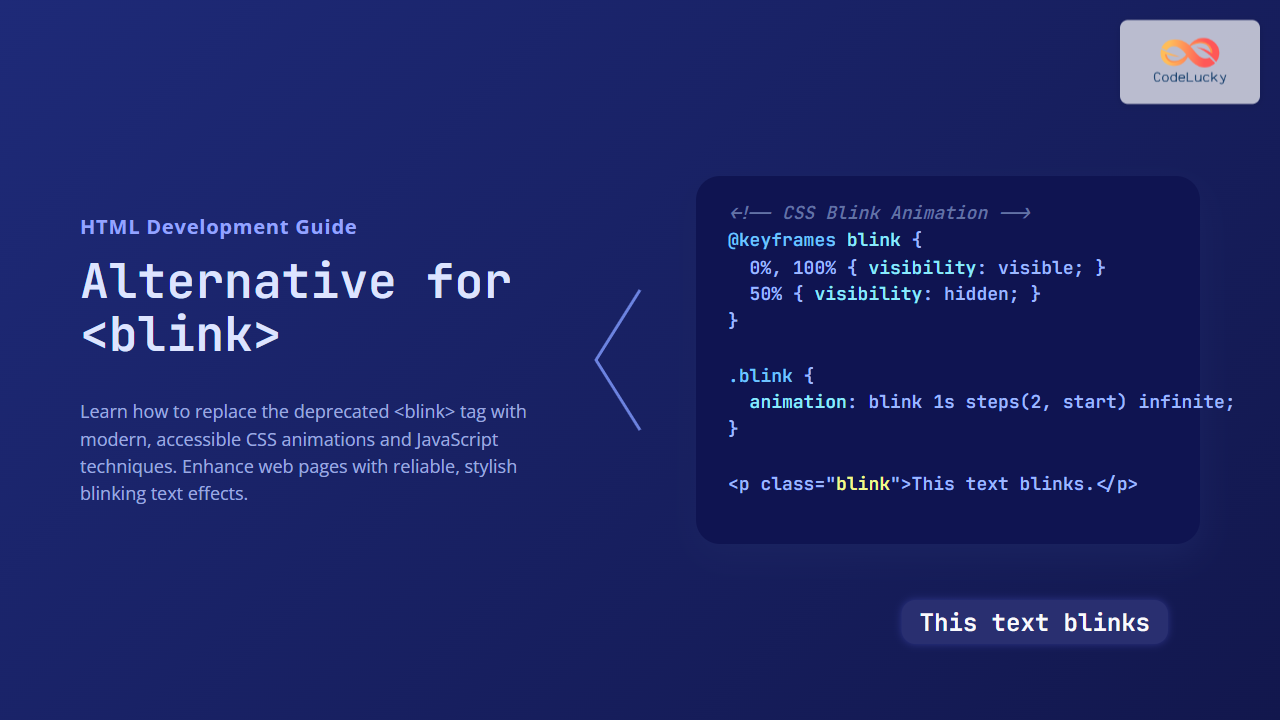HTML DOM TBody Object: A Comprehensive Guide to Accessing Table Body Elements
The HTML DOM TBody object represents the <tbody> element in an HTML table. This element is used to group the main content rows of a table, separate from header rows (in <thead>) and footer rows (in <tfoot>). Accessing and manipulating the TBody element using JavaScript allows for dynamic table updates, content management, and enhanced user interactions. This article will explore the TBody object in detail, providing practical examples to illustrate its functionality.
What is the HTML <tbody> Element?
The <tbody> element is a crucial component of an HTML table structure. It contains the main body rows of the table, typically holding the majority of the table’s data. Structuring your table with <tbody> not only improves semantic clarity but also facilitates easier manipulation and styling of the table content via JavaScript and CSS.
Purpose of the TBody Object
The main purpose of the HTML DOM TBody object is to:
- Provide Access: Allow JavaScript to access and interact with the table body rows.
- Enable Manipulation: Facilitate adding, removing, and modifying table rows within the body.
- Enhance Interactivity: Allow dynamic changes and responses based on user actions.
- Improve Structure: Allow to maintain clear separation of table content (header, body, footer).
Accessing the <tbody> Element
To access a <tbody> element, you typically start by selecting the table element and then accessing its tBodies collection. The tBodies collection is an HTMLCollection containing all the <tbody> elements within the table.
Syntax
// Accessing the table element
const table = document.getElementById("yourTableId");
// Accessing the HTMLCollection of TBody elements
const tableBodies = table.tBodies;
// Accessing a specific TBody element by index
const firstTBody = tableBodies[0]; // Access the first <tbody> element
Key Properties and Methods of the TBody Object
The TBody object provides several properties and methods for interacting with table body elements:
| Property/Method | Type | Description |
|---|---|---|
| `rows` | HTMLCollection | Returns an `HTMLCollection` of all ` |
| `insertRow(index)` | Method | Inserts a new table row (` |
| `deleteRow(index)` | Method | Removes the row (` |
| `align` | String | Sets or returns the alignment of the content inside the ` |
| `ch` | String | Sets or returns the alignment character for the content inside the ` |
| `chOff` | String | Sets or returns the offset of the content inside the ` |
| `vAlign` | String | Sets or returns the vertical alignment of the content inside the ` |
Examples of TBody Object Usage
Here are several examples demonstrating the practical usage of the TBody object in JavaScript.
Example 1: Accessing a <tbody> Element
This example demonstrates how to access a <tbody> element using its id and how to access its rows using the rows property.
<table id="myTable1">
<thead>
<tr>
<th>Name</th>
<th>Age</th>
</tr>
</thead>
<tbody id="myTBody1">
<tr>
<td>John Doe</td>
<td>30</td>
</tr>
<tr>
<td>Jane Smith</td>
<td>25</td>
</tr>
</tbody>
</table>
<script>
const table1 = document.getElementById("myTable1");
const tBody1 = document.getElementById("myTBody1");
const rows1 = tBody1.rows;
console.log("Table Body:", tBody1);
console.log("Number of rows:", rows1.length);
</script>
Output
Table Body: <tbody id="myTBody1">...</tbody>
Number of rows: 2
Example 2: Inserting a New Row
This example shows how to insert a new row into the <tbody> element using the insertRow() method and how to add data into the cells within the newly created row.
<table id="myTable2">
<thead>
<tr>
<th>Name</th>
<th>Age</th>
</tr>
</thead>
<tbody id="myTBody2">
<tr>
<td>John Doe</td>
<td>30</td>
</tr>
<tr>
<td>Jane Smith</td>
<td>25</td>
</tr>
</tbody>
</table>
<script>
const table2 = document.getElementById("myTable2");
const tBody2 = document.getElementById("myTBody2");
const newRow2 = tBody2.insertRow();
const nameCell2 = newRow2.insertCell();
const ageCell2 = newRow2.insertCell();
nameCell2.textContent = "Peter Pan";
ageCell2.textContent = "18";
</script>
Output
| Name | Age |
|---|---|
| John Doe | 30 |
| Jane Smith | 25 |
| Peter Pan | 18 |
Example 3: Deleting a Row
This example shows how to delete a specific row from the <tbody> element using the deleteRow() method.
<table id="myTable3">
<thead>
<tr>
<th>Name</th>
<th>Age</th>
</tr>
</thead>
<tbody id="myTBody3">
<tr>
<td>John Doe</td>
<td>30</td>
</tr>
<tr>
<td>Jane Smith</td>
<td>25</td>
</tr>
<tr>
<td>Peter Pan</td>
<td>18</td>
</tr>
</tbody>
</table>
<script>
const table3 = document.getElementById("myTable3");
const tBody3 = document.getElementById("myTBody3");
// Delete the row at index 1 (Jane Smith's row)
tBody3.deleteRow(1);
</script>
Output
| Name | Age |
|---|---|
| John Doe | 30 |
| Peter Pan | 18 |
Example 4: Aligning Table Body Content
This example illustrates how to align the content within the <tbody> element using the align property.
<table id="myTable4">
<thead>
<tr>
<th>Name</th>
<th>Age</th>
</tr>
</thead>
<tbody id="myTBody4">
<tr>
<td>John Doe</td>
<td>30</td>
</tr>
<tr>
<td>Jane Smith</td>
<td>25</td>
</tr>
</tbody>
</table>
<script>
const tBody4 = document.getElementById("myTBody4");
tBody4.align = "center";
</script>
Output
| Name | Age |
|---|---|
| John Doe | 30 |
| Jane Smith | 25 |
Real-World Applications of the TBody Object
The TBody object is crucial in scenarios where dynamic table manipulation is required, such as:
- Data Grids: Dynamically updating table content based on user interactions or data changes.
- Interactive Forms: Adding or removing rows in a table-like input form.
- E-Commerce Sites: Managing product listings, shopping carts, and order details.
- Dashboard: Displaying dynamic data using tables and charts on user dashboards.
- Real-time updates: Updating table data in real-time based on server updates.
Browser Support
The TBody object and its associated properties and methods are supported by all modern web browsers. This ensures cross-browser compatibility for your web applications.
Conclusion
The HTML DOM TBody object is essential for working with table body elements in JavaScript. By understanding its properties and methods, developers can dynamically interact with and manipulate table content effectively. This guide has covered the key aspects of the TBody object, providing practical examples and use cases to illustrate its importance in web development. With this knowledge, you can create more interactive and dynamic table-driven applications.

